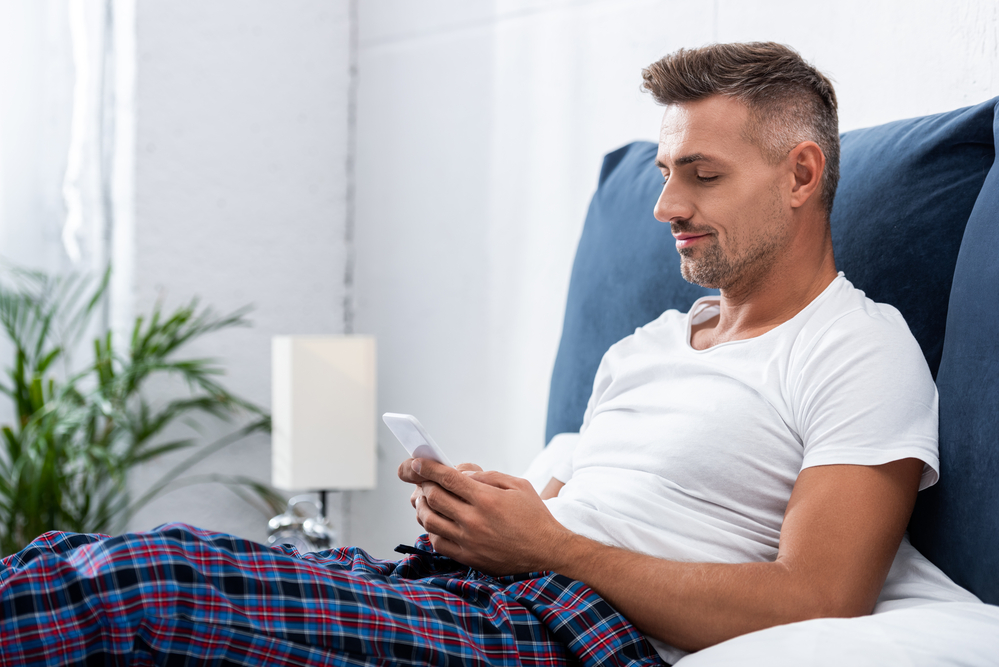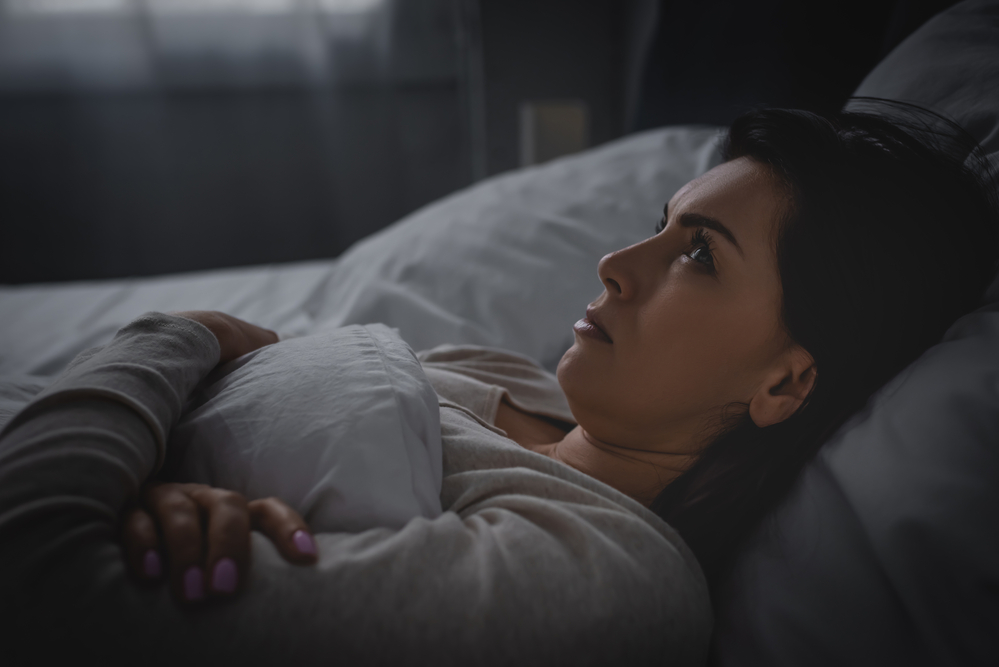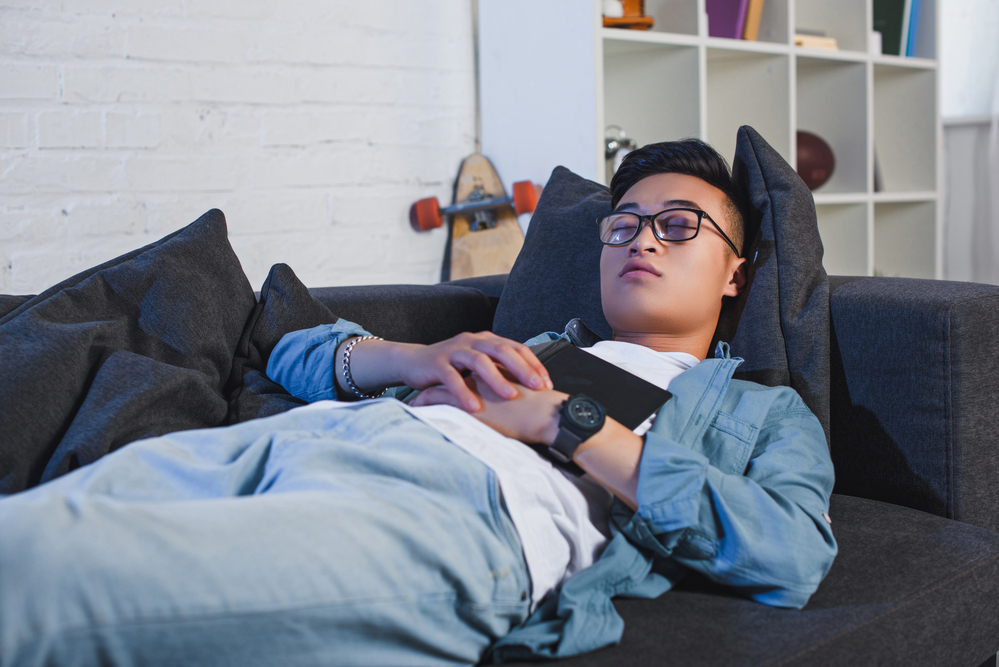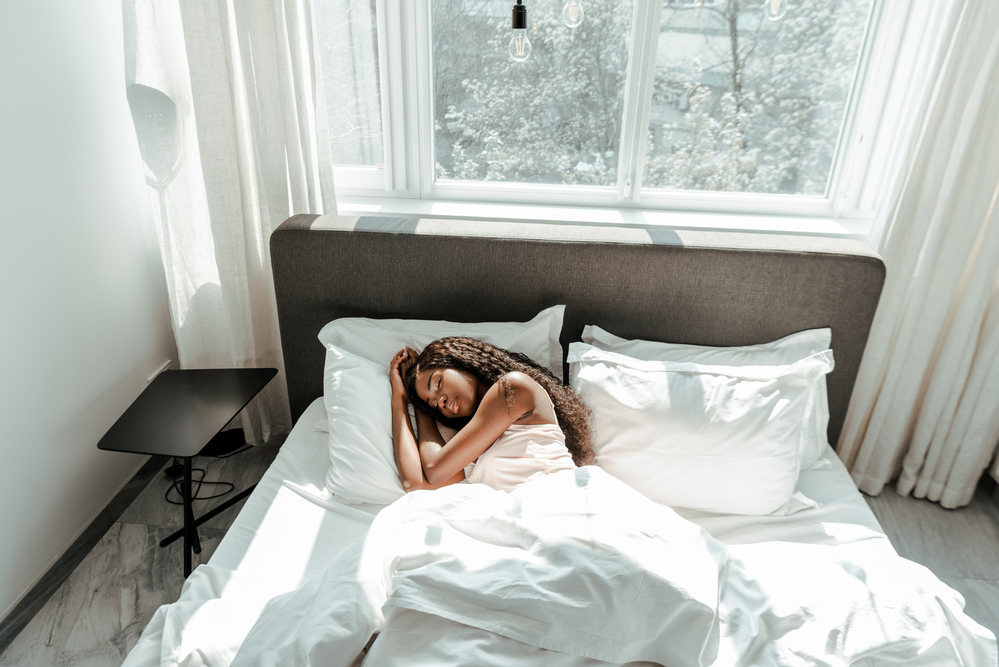
In a previous article, we took a comprehensive look at sleep and explained why people need it and exactly how important it is. In doing so, we touched on how neglected this essential process has become for many people today. The truth is, this issue is a somewhat recent one for people, and yet it's become essentially ubiquitous. Workers in various fields are expected or encouraged to neglect a healthy sleep schedule or otherwise do it by their own volition, prioritizing work over rest. This mindset is a very faulty one, and the phenomenon as a whole deserves a closer look.
Sleep and health are very closely linked to one another. And as we have continued to progress and develop, the scientific understanding of the importance of sleep has also progressed. Ironically, however, most people have grown to neglect sleep, and trends show that a growing number of people aren't getting enough sleep. Our previous blog covered this trend, but what's interesting to note is that this is a trend in developed countries more than anywhere else.
Historically, of course, sleep was always tied to simply daylight and darkness. Once it was dark, it was time to find shelter and get a good night's rest. When life became more about farming than hunting and gathering food, working after dark was still virtually impossible, and so people would have to turn in for the night once darkness fell. Not to mention the physical toll that such work would have on people, a toll that demanded adequate sleep in order to work properly.
Studies from historians have shown that in pre-industrial society, many cultures in various areas of the world had what is now called biphasic sleep. They would have two large chunks of sleep at night, with a period of productive wakefulness in between. For example, they might turn in at 9PM, sleep until 1AM, wake up and read, sow, or do low-skill chores around the household for two hours or so, then go back to sleep for another 4 hours. Many other cultures slept much as we do today, with one large chunk of sleep at night with no period of wakefulness in between.
What is clear, however, is that a healthy amount of sleep was ubiquitous for nearly all cultures in pre-industrial society. There are clear examples of this today, and studying people who lead pre-industrial lives to this day can tell us a lot about sleeping habits and how they've changed. A study on the Old Order Amish found that they get anywhere from 7.5 hours to 8.1 hours of sleep (depending on the season)- compare that to the 6.8 hours the average American gets. Other studies of hunter-gatherers in Africa show that only 2.5% report trouble sleeping, a number that is around 20-30% or higher for varying countries in the west.
The industrial revolution completely changed the lives of most people around the world. We got electricity, advanced technology, and we changed from a rural agricultural lifestyle to an urban one. The urban lifestyle includes different kinds of work and has changed in its own right since the conclusion of the industrial revolution. But whether its factories or offices, it has been a massive change for humanity, and sleep has continuously suffered- especially in recent decades. The same Gallup poll that found Americans slept an average of 6.8 hours today also found that Americans in the 1940s got an average of 7.9 hours of sleep.
Many factors contribute to this. These advances have made it possible to work or even do countless leisure activities after dark. This, of course, is a wonderful thing, but it's also a double-edged sword which has caused a substantial rise in sleep deprivation for people. And you don't have to be in an advanced and wholly developed community to see these differences. Even something as simple as lighting at one's home can cause them to get less sleep.
The key difference between now and 10,000 or 300 or even 70 years ago is the rapid pace at which technology is advancing. The abundance of technology and the exponential speed at which it progresses is single-handedly the biggest factor here. But that's a multifaceted issue- we can't simply say "we have electricity; therefore we sleep less". There's multiple ways having modern technology has changed our sleeping habits.

Photo Credit: Depositphotos
We've gone from the fields and the outdoors to the stores, factories and the offices. Of course, many people do still do labor intensive work, such as construction or farming. Yet, for most people, they are working in a different environment today than they have for the majority of history. The United States concluded in a report that one out of five Americans works in only ten occupations, nine of which are service-based.
Most people today work jobs that aren't dependent on natural daylight, and can pretty much do the job whenever. Of course, most companies tend to have a 9-5 schedule (or something similar), but that isn't always the case. If the workload is too heavy or you're behind, you can stay late to finish it. You can work from home in the evening. Some jobs even require night shifts. Cashiers are the second most popular occupation in the States, and they often have to work graveyard shifts.

Photo Credit: Depositphotos
Work, in general, has become a lot more flexible. That usually is a good thing for most of us. Save for some extreme exceptions; we are no longer limited by weather, daylight, or distance in being productive. But this has had a downside where we've grown to neglect one of the most crucial aspects of our lives. And as we've mentioned previously, neglecting sleep can make us tangibly less productive, essentially negating the positive effects of having a more flexible work schedule.
So (hopefully) you aren't overworked, and rarely have to work in the evenings. Great! So what do you do with that time instead? Read? Watch something online or on TV? Mess around on your phone? Some people work out in the evenings after work, but even then they are likely to do one of those things after their workout. But the truth is, we shouldn't be in front of a screen any time in the last two hours before bed as they keep our minds active and alert.
Studies have consistently shown a direct correlation between electronic use and both a later bedtime and shorter total duration of sleep. Most of these studies have focused on children, but the conclusions they've reached apply to all age groups. Screens have been proven to be specifically harmful to sleep, as the blue light common in all LEDs has negative effects on our circadian rhythm and has been linked directly to insomnia.
That being said, doing anything too active (physically or mentally) close to bedtime is detrimental to a good night's rest. Phones are the most egregious example of this due to their convenience, addictive quality, and blue light emission, but they are among many examples of activities to avoid in the last hour or so before bed. That time is to unwind and get ourselves ready for bed, and doing so can save us from a lot of tossing and turning.

Photo Credit: Depositphotos
You're probably wondering if this is a typo- or maybe wondering if we started to write a longer phrase but forgot to write the rest. But no, you read it right. The truth is, lighting, and how prevalent it has become in every environment of our lives, is making us more sleep-deprived. This ties into the last two points- of course, without light, we wouldn't have more flexible work hours, and lights are the foundational aspect of screens. But the light in and of itself has been linked to a worse night's sleep.
Dr. Matthew Walker- a neuroscientist and professor at the University of California Berkeley- is one of the leading researchers in the field of sleep and the most zealous proponent of getting your eight hours every night. He suggests not only avoiding screens or any other overly stimulating activity before bed but even dimming the lights in your house down halfway, if possible. It turns out light, in general, can suppress the secretion of melatonin, a hormone crucial to regulate sleep. As he puts it, the industrialized world today is "darkness deprived".
A study on a community of rubber tappers living in a very remote area of the Amazon found that those with electricity at their homes slept 7.5 hours on workdays and 8 hours on days off. Those without power at their house in the same community got 8.8 hours of sleep on days off and 8 hours on workdays. This is a significant discrepancy considering all else is essentially equal among these people, and the community is entirely homogenous.
This one encompasses the entire idea behind this series of blog posts. Why and how did we come to neglect sleep so grossly? And why isn't this an issue that's spoken about more often? The truth is probably complex and multifaceted, but there are some clear examples of this change in attitude that are very clear and extremely unacceptable.
For example, the corporate culture of being a workaholic. It's become cool to be overworked, to pull late nights at the office, or to neglect sleep (or many other aspects of life) for work. "You can sleep when you're dead," these people say. For them, sleep isn't a crucial aspect of life, but an obstacle that separates them from the most vital aspects of their lives- work. And this is an attitude that's becoming ever more prevalent among workers in the industrialized world.
It also doesn't help that these views are often enforced by some ridiculous takes- usually from otherwise reasonably reputable sources. Countless articles float around online about sleep. One from the World Economic Forum boldly claims that "A good night's sleep is a relatively modern concept," before bizarrely asking "but is it the right one?". Another article from the BBC picks apart "The myth of the 8-hour sleep".
Both center around the discovery of segmented sleep (which even we mentioned at the beginning of this article). However, the headlines are (surprise!) sensationalist and misleading, and the conclusions they draw from the previous tendency of some peoples to utilize segmented sleep is a stretch. Even segmented sleep combined for a total of eight hours and was definitely "a good night's sleep". And our replacement of the 10-11 hour block in the night consisting of two 4 hour periods of sleep with one 2-3 hour period of wakefulness in between with one 8 hour block of sleep is logical considering circumstances.
Though there are many other factors at play here, these four issues represent the leading cause of modern sleeping issues. We already know the effects of sleep deprivation from part one- both physical and mental. We also know that now, more than ever, a growing number of people are afflicted with sleeping disorders. Now that we've also understood the underlying causes so far, it's essential to understand precisely how we can get back on track and begin taking sleep seriously.

Photo Credit: Depositphotos
Chances are if you're reading these blogs, and you live somewhere in the industrialized world, you may not be getting enough sleep. Most people don't even realize, but that's an exacerbating factor here. So what can we do about it? Well, there are general, broad, long-term behaviors we can target, and we can also look at everyday tips you can use on how to sleep better on a night to night basis.
None of these suggestions are going to be easy fix-alls. There are no shortcuts to health, and especially to a good night's sleep. And although this is true for all of the following tips, it's especially true for targeting long-term behaviors that help us get a better night's rest. The main aspects to target here are attitude and knowledge, general health, and dependence on sleeping aids.
As you may have guessed, this is the most crucial aspect to target. Considering it's been the most significant cause of the issue at large, our response to it must be equally as vital. It may be cliche, but to target the problem, we must first admit we have a problem. And if you're sacrificing sleep to work, study, or party regularly, then there's a problem.
We must first realize precisely how poorly this is affecting us. And once again, we'd like to encourage everyone to read the first blog to truly understand this. To put it shortly, sleep affects every aspect of our lives, productivity, concentration, physical wellbeing and performance, emotional stability, and everything else in between. And these are things that all suffer measurably even after one night of poor sleep. Poor sleeping can plague us with far worse and more chronic issues. And understanding this- genuinely understanding and appreciating it- is the first step to creating healthier sleeping habits.

Photo Credit: Depositphotos
This is a bit of a chicken or egg question because sleep affects health and the ability to exercise more effectively, but they, in turn, help people sleep better. That being said, they both affect each other, so it's essential to take both aspects into account. There are, however, a few key points to note when it comes to health and exercise and how they affect sleep.
Firstly, regular physical exercise is a great way to ensure a good night's rest, so try to exercise every day or at least a few times a week. With that in mind, it's important to note that exercise should be done earlier in the day and avoided in the hours leading up to your bedtime. Another aspect of physical activity to consider is sunlight, which we need for our circadian rhythm (among other benefits). Going outside for at least a half an hour every day is crucial.
Eating healthy and avoiding junk food will help you get a good night's sleep, but it's again important to avoid eating before going to bed, as eating activates your digestive system and delays sleep. It can also cause heartburn or digestive issues, which can be incredibly disruptive at night.
As a general rule, it's best to try to get natural sleep instead of utilizing prescription or over the counter drugs. As Dr. Walker explains, "no drugs or supplements that we have currently produce naturalistic sleep". This is absolutely vital to understand- most sleeping aids sedate us and knock us out, but they don't provide us with all the aspects of our natural sleep cycle. Melatonin is the exception here, but melatonin is a sleep regulator and not inducer, and it's a hormone our bodies produce naturally.
This also applies to some home remedies many use today. Alcohol and marijuana can also be used to induce sedation, but they don't allow us to get REM sleep and can be extremely disruptive for sleep. A common phenomenon with alcohol is waking up early after a night out- an attribute of its disruptive nature, while with marijuana a common effect is feeling groggy and unrested the morning after, even if the user got a "sufficient" amount of sleep.
Here we will suggest what things you can do to fall asleep and stay asleep on a night to night basis. We'll be citing Dr Walker in this section, as he consistently writes and speaks on this question, and is the foremost expert in the field currently. What he suggests doing are the following:
Going to bed and waking up at the same time on an everyday basis is very important to fix your sleeping schedule. This helps sync our biological clock and helps keep it running smoothly. Most of us probably already wake up at the same time every day (at least during the workweek). If you do this for some time, you will notice yourself both going to sleep and waking up a lot more easily. And be sure to avoid napping in general, but especially after 3 PM.
For reasons already discussed, your bedroom must be dark if you wish to go to sleep on time and avoid waking up during the night. In addition to this, it's important to have a cool bedroom- our body temperature needs to drop 1-degree celsius or about 2 degrees Fahrenheit in order for us to fall asleep and stay asleep. The only thing we'd add to what Dr Walker suggests here is a comfortable bed- might go without saying, but it's often something people overlook. Make sure your mattress, pillows, and comforters are to your liking.

Photo Credit: Depositphotos
We've all experienced it: tossing and turning in bed for hours trying to get to sleep- to no avail. To save yourself the frustration and help you get to sleep, the next time you find yourself not being able to fall asleep for a prolonged period, get up and do something else for a while before you go back to bed. It'll help you fall asleep on your next try and also avoid creating an association in your brain between being awake and being in bed- saving you another sleepless night in the future.
Fixing a terrible sleep schedule or unhealthy sleeping habits isn't easy. It can't be done in one night, it can't be resolved with a quick life hack, and it certainly can't be done through the medium of pharmaceuticals. But if we understand the issue, understand how exactly we got here, and truly comprehend its consequences, we can take the necessary steps to resolve it.
Why We Sleep by Matthew Walker
https://www.sleepfoundation.org/articles/how-alcohol-affects-quality-and-quantity-sleep
https://www.sleepfoundation.org/sleep-disorders
https://www.youtube.com/watch?v=5MuIMqhT8DM
